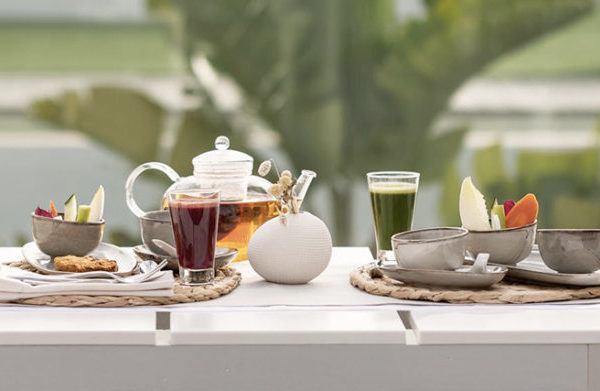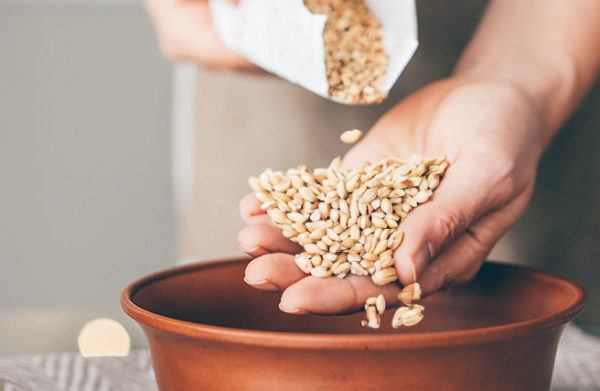
SHA Magazine Healthy Nutrition
Diet for triathletes – Interview to Gemma Casulleras
Gemma Casulleras, a sport professional, read our post about What to have before, during and after exercise and wrote us to tells her experience of having changed her eating habits for a healthier eating and how it has been a substantial change in all aspects of her life, specially on her diet for triathletes.
Thanks a lot Gemma for sharing your experience and tips with the rest of SHA Magazine’s readers!
Did you experienced any digestive problems that made you change your eating habits?
I always thought I ate properly but when I trained in the afternoon, I realized there were some foods that my body could hardly digest. I discovered that raw foods, such as raw salads, didn’t fell well on me. One day I bought a book about energy kitchen and I discovered a world of possibilities that went beyond my salads and grilled fish. I started to try, to experiment with new foods and I found the key to a good digestion that allowed me to train in perfect condition and feeling with much more energy.
As an athlete, what types of foods do you usually eat that provide extra energy?
I am an amateur athlete specializing in long distance triathlon and I spend two to three hours a day during the week and four hours on holidays training, but I also work at an office for eight hours. I have dogs and housewrok to do too… I need a lot of energy!
Foods that work best for me are cooked cereals which I used to vary depending on the season. In summer I used to eat cereals such as barley or rice, which can be combined with vegetables, in the wok or lightly sauteed, fish… and in winter I used to eat grains such as oats, spelled, pasta, rice combined with seasonal vegetables and seaweeds. Steamed or baked fish and seitan accompanied by vegetables after training are perfect to recover after training. Also eggs but not meat.
What time do you think is the best time to eat them?
Cereals combined with legumes, seaweeds and cooked vegetables at lunch; sometimes bluefish, they provide many energy and ensure a proper digestion. At night I prefer eating vegetables like pumpkin, broccoli or miso soup, accompanied by steamed white fish, seitan, tofu and omelet with organic eggs. In the morning, oatmeal creams with dried fruit or applesauce, cereals coffee, smoothies in summer, oatmeal pancakes… the same as in the snack time.
Have you noticed any improvements by introducing healthier foods in your diet? In that case, what did you notice?
I always thought I ate healthy but we always can make things better. Without being obsessive, it’s good to listen to the body. Most of us believe that eating a super salad with raw lettuce nuts, cheese, fruits and tuna is very healthy, but how we feel after eating? Probably after an hour you feel your belly is swollen. We don’t eat unhealthy,we cook and combine foods in a wrong way. In my case I had a good pantry but I didn’t cook well neither combine properly, the macrobiotic has helped me a lot to get it.
Do you have any food intolerances? If so, what foods do you use as substitutes?
I think not, the digestive problems I had came more from a bad combination and cooking that from food allergies. What I noticed was that every time I went to the cafeteria for breakfast and ate a sandwich and a coffee with milk, it made me a knot in my stomach that left me feeling bad for the whole morning. No longer It happen to me when I take my sandwich of spelt bread and a cereals coffee with vegetable milk. Probably this happens to many people but we are used to feeling in a way and yet it’s in our hands to feel better.
What do you recommend to other athletes who are in the same situation?
There is life beyond pasta, rice, tuna, protein shakes and dry cereals. What I am telling you is just a personal experience but the reason to share it is to help others. What we eat is the fuel that will allow us perform at our best. Digestive problems are common when we do sport, especially in competition that put the body to the limit. We must also be careful about abusing supplements or protein shakes, because they charge kidneys and liver too much which already work enough to remove metabolic waste generated in hard training and competitions. They are sold in a very unprofessional manner and should be used only when needed.
Have these changes influenced in the relationship with your friends / family / partner?
Not at all, my partner is a trainer and triathlete. We cook for both of us and it works. We agree with this way of eating. He also feels much lighter, energized and has improved digestions. With family and friends… well they know us. We are not as those people who go with the lunch box everywhere, but when we go to a barbecue, we bring our seitan and vegetables. No problem. Follow a way of eating oriented to macrobiotics doesn’t mean you have to be a freak, or attack those who don’t eat like you. We don’t refuse to eating some cake when celebrating a birthday!
Reactions of others when they ask us how we eat or “What is this mush?” are almost always the same… “you eat weird …”. I don’t eat weird, for me it’s normal. My constitution is thin and athletic and I owe it to feed well and train. Genetics help but you have to do your part.
What’s weird and sad is that many people spend their lives trying diets and are still overweight, swollen. Girls with 15 years with cellulite and boys with 30 with a worring belly, going to the gym and thinking they are eating right. Something is wrong with our way of eating and definitely with the food quality.
How is the eating routine of Gema Casulleras? (An example)
I change every day, but I make an example of a specific day.
7h. breakfast with a oats cream or oats crepes with nuts, raisins or other dried fruit and applesauce. I accompany it with cereals coffee during the year or a smoothie if it’s summer.
10:30h. a.m. toasted walnuts and fresh seasonal fruit or Kukicha tea or Mu tea.
14h. summer quinoa salad (with quinoa, tofu, lightly sauteed vegetables, chopped nori seaweed, toasted seeds) + cheese with rice syrup.
17h. Rice flakes cream with vegetable milk, dried fruit and toasted pine nuts + Kukicha tea.
18.30 to 21h. – During training: homemade bio puffed rice bars with seeds, Kukicha tea with a pinch of umeboshi paste and rice syrup.
At the end, if the training has been hard, pea protein shake with oat milk or rice.
22h. Cod with steamed vegetables.
What do you think about SHA nutrition?
I haven’t been at SHA Wellness Clinic, I’m from Barcelona, but I hope to go soon with my partner, we are getting married next year and we want to spend a few days there. Your website is wonderful and I think your nutrition articles approach the public to a healthier life and to feel better.
I appreciate very much your interest in the opinions of the followers in social networks. And if my experience can help bring people to change their lives, I encourage them to do it, because they wont regret.





